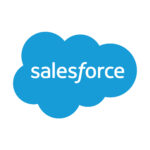David Jenkins, founding partner at digital marketing agency MickeyLlew discusses key steps for companies and brands to take to optimise their online platforms for seasonal search.
A digital platform’s potential to generate substantial profits is often underestimated, with most brands in South Africa failing to optimise their websites for organic search. Organic search results are those that are listed without being paid for, and are considered the most trustworthy sites, based on user-behaviour.
Search engine optimisation (SEO) is one of the most under-utilised communication tools to boost a brands organic search ranking. However, with strategic consultation, it can become an important driver of new business growth and customer interaction.
The most common Google search keywords during the festive season are relatively consistent year after year – apart from specific searches linked to current affairs.
Search terms such as “Christmas gift ideas”, “House sitters in my area”, “House alarms in Johannesburg”, “Kennels near me”, “Christmas gifts for dad in 2018” and “Car hire in Cape Town” pop up more frequently around this time of year. Websites that appear at the top of these search rankings are usually the same ones and see a spike in sales as a result.
However, lower ranked brands looking to drive more traffic to their sites can follow these simple steps to increase their traffic and potential for more business, not just over the festive season, but throughout the year.
- Keep search in mind from the onset
Most brands fail to consider SEO when building their websites. By the time they look at search, they’ve already spent millions and then blow the rest of their budget when they have to rebuild the site from scratch to cater for organic search. In an increasingly digital world, your website is more valuable than ever, and an ongoing search functionality should be in place throughout the year if you are serious about business growth and acquisition.
2. Organic search is always better than paid search
Google and other search engines have been tinkering with the paid advert model for years and prioritised them to display first. This can make it tempting to rely on online adverts to drive business leads, but in most cases, the data shows us that people are more likely to click on organic listings over their slightly less trusted paid listings. While adverts can be effective in certain cases, online content should be developed from in-depth keyword research to improve your site’s organic ranking.
- Use research insights
Before making changes to online platforms, ensure that your strategy is driven by comprehensive keyword research. Tools such as Google Trends, Keyword Planner, AH Refs and Keyword Tool IO offer in-depth insights about the most commonly searched keywords, phrases and user behaviour.
- Focus locally and currently
The rise of location functionality means people looking for consumer goods or services increasingly specify the area in which they live or work by adding the name of the city or suburb or attaching “near me” or “in my area” in the search. By reaffirming the geographic area on each webpage, the right people get to your site quicker and the conversion rate is much higher as search engines filter out incorrect ones. Another trend to consider is that of users including specific time periods, such as “Budget Speech 2018”, or “Best gift ideas in 2019”, in their searches.
- Engage on ratings
While the highest rated brands (customer ratings) aren’t necessarily the top listed pages, this element is becoming more influential in ranking for the keywords that relate to your business service/product offering. To improve your page’s ranking when ratings take a dip, make sure to always engage with unhappy (and happy) customers and take time to offer more relevant content than competitors.
- Adjust to the Season
Updating a website during special times of the year such as Easter, Eid, Christmas, Valentine’s Day, or even major global sporting events can mean a bit more work and cost. However, in an increasingly cluttered online world, consumers are looking for relevant, dynamic and responsive sites that show they are in tune with the times.
By responding to the social calendar and change in seasons, a brand can take advantage of consumers’ growing reliance on the Internet to help run their lives, whether they are looking for a complex business service such as digital marketing, or an everyday product like face cream.
- MRF Unveils Latest MAPS® Data - 20th February 2025
- The BRC announces changes to the board and updates for 2025 - 17th December 2024
- Top 50 DSTV TV programmes – October 2024 - 12th November 2024





